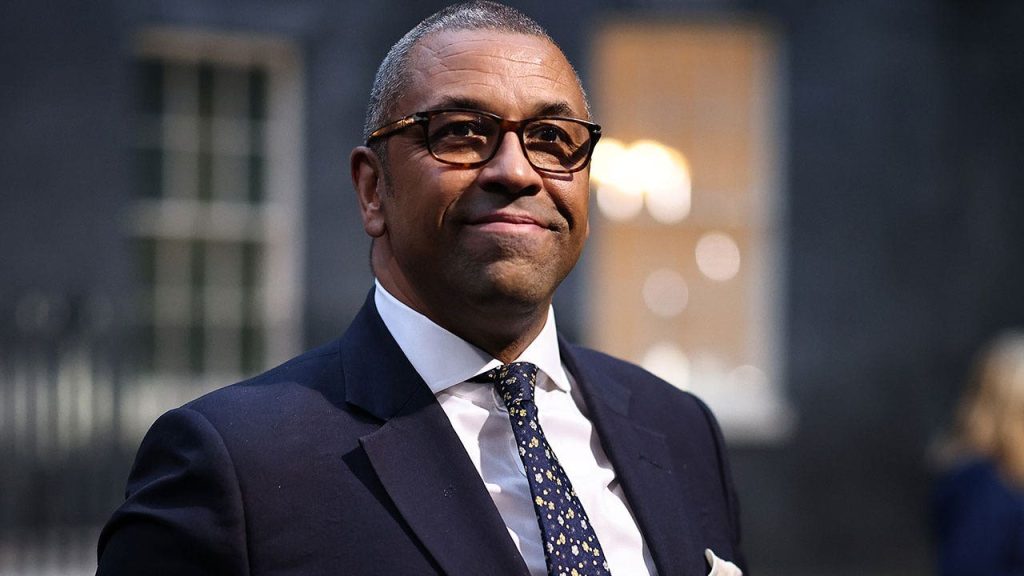The British government announced its decision to expel Russia’s defense attaché, Maxim Elovik, over spying allegations, along with other measures targeting Moscow’s intelligence operations in the U.K. This move is part of efforts to counter what Home Secretary James Cleverly described as the “reckless and dangerous activities” of the Russian government in Europe. The measures included rescinding the diplomatic status of Russian-owned properties suspected of being used for intelligence purposes, as well as imposing new restrictions on Russian diplomatic visas and visits. Cleverly warned of anticipated accusations of Russophobia and conspiracy theories from the Russian government in response to these actions.
Russia has retaliated, with spokesperson Maria Zakharova stating that they will respond in kind to Britain’s decisions. The two countries have had a strained relationship for years, with the U.K. accusing Russia of targeted killings, espionage, cyberattacks, and other hostile acts. The British government has imposed sanctions on Russian individuals and organizations, and taken steps to combat money laundering through London’s financial markets. The recent measures were said to be in response to criminal cases in London involving allegations of espionage and sabotage by individuals acting on behalf of Russia, as well as Russia’s activities in other European countries, including the planned sabotage of military aid to Ukraine in Germany and Poland.
Foreign Secretary David Cameron highlighted Russia’s increasingly bold attempts to undermine UK and European security since the invasion of Ukraine. The government sees these actions as sending a clear message to Russia that their aggressive behavior will not be tolerated. Elovik, the Russian attaché facing expulsion, has been in Britain since at least 2020 and was photographed paying respects to fallen Soviet soldiers from World War II in London and Manchester. He was summoned to the U.K.’s Defense Ministry on the day of Russia’s invasion of Ukraine in February 2022, indicating a connection between his presence in the country and recent events.
The decision to expel Elovik and take other measures against Russian intelligence operations in the U.K. reflects the British government’s commitment to countering perceived threats to national security posed by Russia. The move is part of a larger strategy aimed at sending a strong message to Moscow that provocative actions, such as the invasion of Ukraine and other hostile activities, will not go unanswered. The government’s actions also follow criminal cases involving allegations of espionage and sabotage by individuals with ties to Russia, as well as reports of Russian interference in military aid to Ukraine in other European countries.
The British government’s announcement of the expulsion of the Russian defense attaché, along with other measures targeting Moscow’s intelligence operations in the U.K., represents a significant escalation in tensions between the two countries. The move comes in response to what officials describe as Russia’s aggressive and destabilizing actions in Europe, including the invasion of Ukraine and various other hostile activities. The government’s decision to expel Elovik and revoke the diplomatic status of Russian-owned properties is aimed at sending a strong message to Moscow that such behavior will not be tolerated. Russia has vowed to respond in kind to these actions, setting the stage for a potential diplomatic standoff between the two countries.
Overall, the British government’s decision to expel the Russian defense attaché and take other measures against Moscow’s intelligence operations in the U.K. represents a significant development in the ongoing conflict between the two countries. The move is part of a broader strategy aimed at countering what officials see as Russia’s increasingly aggressive and destabilizing behavior in Europe. By taking these steps, the U.K. is sending a clear message to Moscow that provocative actions, such as the invasion of Ukraine, will not go unanswered. The government’s actions also reflect a broader effort to strengthen national security and protect against threats posed by Russian intelligence operations in the U.K.













